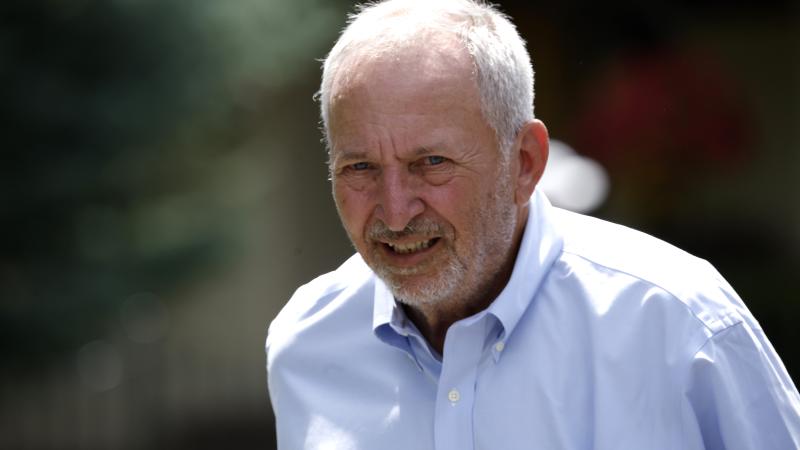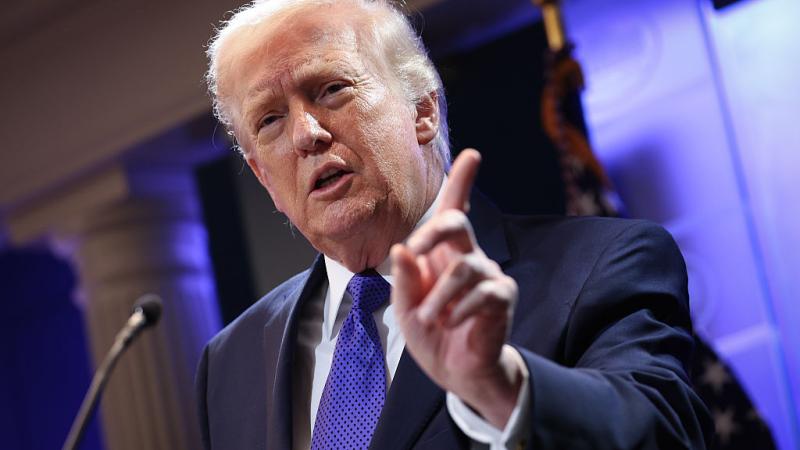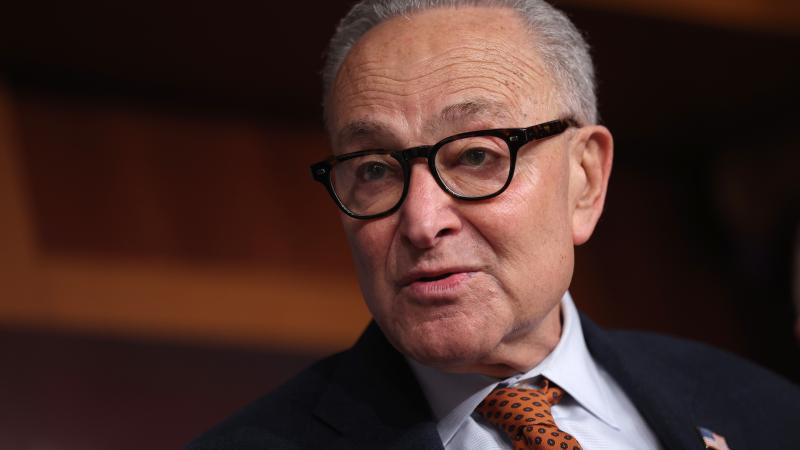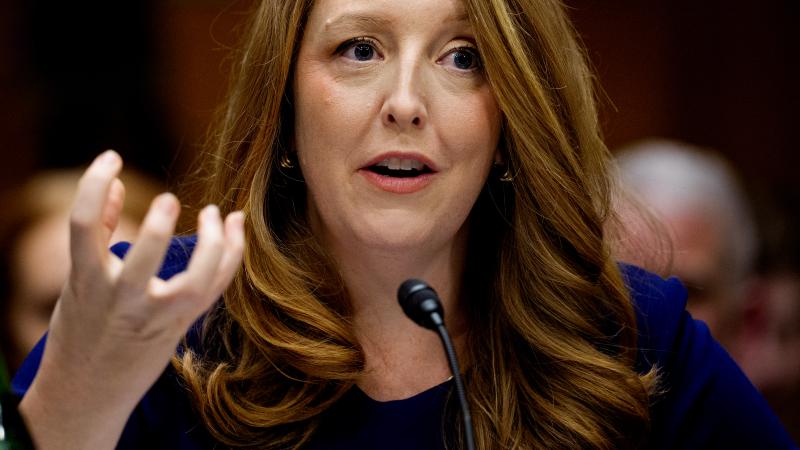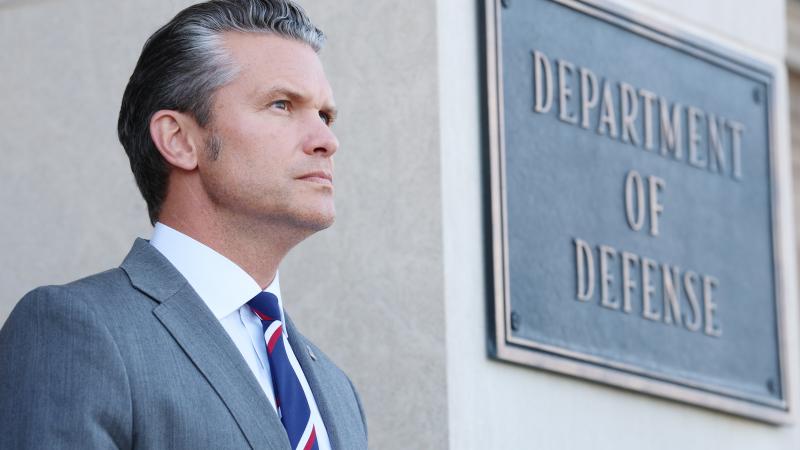Inflation a potential Achilles heel for Trump as Dems finally admit economy is actually bad
Now Trump owns the problem: Direct action on inflation, as well as public statements on the issue, have been notably absent from the opening act.
Democrats spent most of the 2024 campaign cycle insisting that the economy under President Joe Biden was flourishing while now-President Donald Trump campaigned on fighting inflation and improving conditions.
Now that Trump is in office, however, Democrats have changed their tune and the new president risks alienating many of his supporters through inaction as polling suggests inflation remains voters' top concern.
Since taking office just over three weeks ago, Trump has flown out of the gate with executive orders, diplomatic efforts, major reforms, and a host of initiatives to make good on his campaign promises. At the same time, direct action on inflation, as well as public statements on the issue, have been notably absent from the opening act.
Inflation reached 3% in January, a modest uptick from the 2.9% in December. Trump responded via Truth Social, saying “Biden inflation up!” Notably, Trump took office in late January and there was little, if any, time for his own policies to impact that month’s data. While voters may be understanding about short-term economic inertia, the public appears overwhelmingly concerned that Trump has not appropriately focused on the issue in his first month.
What the polls say
In a recent media segment, CNN’s Harry Enten highlighted polling from myriad outlets showing widespread voter discontent with the economy. Among those was a Marquette University Law School Poll showing that 32% said the economy was “excellent/good” in November of 2024, while just 27% say so now.
“Inflation ate the Joe Biden presidency alive. It crushed it. If these numbers remain the same, inflation will do the exact same thing to Donald Trump’s second term,” he said. “It will eat it alive. It will crush it.”
He further pointed to a CBS News survey showing that 66% believe Trump is not focused enough on inflation while 31% say he has addressed it the right amount. Overall, Trump is currently in good graces with voters, earning an average 48.8% approval rating in the RealClearPolitics aggregate. A further 46.0% disapprove of his performance.
The Democrats and press change their tune
Throughout the campaign, many media pundits and analysts repeatedly pointed to falling inflation and unemployment figures, as well as favorable jobs reports, to claim that the Biden economy was better than voters perceived it.
“Trump wants you to believe that the US economy is doing terribly. It’s untrue,” wrote Steven Greenhouse in The Guardian in late October.
Politico wrote an op-ed admitting the error this week, titled “Voters Were Right About the Economy. The Data Was Wrong.” In that op-ed, former U.S. Comptroller of the Currency Eugene Ludwig asserted that analysts rarely considered “whether something else might be responsible for the disconnect — whether, for instance, government statistics were fundamentally flawed.”
The left-leaning media tried to bolster such claims as a fact: NPR went as far as to run a headline saying "Trump inherits a strong economy by the numbers." U.S. News and World Report said that "Trump Will Inherit a Better Economy Than He Left Behind." Searching the Google news index, it appears that the Associated Press mentioned the price of eggs only three times during the entire 2024 campaign but in the few weeks since Trump's election, the AP has published more than a dozen stories where the high cost of eggs was the centerpoint of the inflation picture.
Indeed, conservative media often made that exact point by highlighting the Bureau of Labor Statistics (BLS) repeatedly revising its jobs reports downwards a few days after the initially positive figures attracted the spotlight.
Throughout 2024, the White House was touting the success of “Bidenomics” and the gap between the Washington establishment and the public was readily apparent, months ahead of the election.
Trump has a plan
While on campaign, Trump made clear that his plan to address rising cost of living issues was to unleash American energy production and that he believed lower energy costs would lead to declining prices across the economy.
"It's going to start with energy," he said at a town hall event in Warren, Mich.; last September. "We're going to drill, baby, drill. Energy is coming way down. Energy is coming way down. And when energy comes down, everything else follows. That's what started this onslaught of inflation that’s the greatest we've ever had in our country.”
His appointment of Energy Secretary Chris Wright and Interior Secretary Doug Burgum have been key moves to that end, but Trump has generally refrained from linking energy production to fighting inflation in these past few weeks. Notably, such a policy would likely take several months to bear any fruit and voters may be somewhat understanding of that, but higher-than-expected inflation figures for January have renewed interest in his plans.
When announcing Burgum’s appointment, Trump touted his future leadership of a new National Energy Council (NEC) dedicated to expanding energy production.
“With U.S. Energy Dominance, we will drive down Inflation, win the A.l. arms race with China (and others), and expand American Diplomatic Power to end Wars all across the World,” he said in mid-November.
Will voters be patient?
Initial responses to the Enten story were mixed, with some highlighting Trump’s relatively short time in office during the polling period, some agreeing that they hoped Trump would emphasize the issue to a greater extent, and still others insisting that his efforts to cut wasteful spending and present a balanced budget were a genuine effort to tackle the problem.
A recent hearing of the Oversight Subcommittee for DOGE saw one witness suspect that the imposition of front-end verification in the payment systems could save the government up to $1 trillion annually. Between Elon Musk’s identified cuts, fraud estimates, and the prospect of eliminating the Department of Education outright, Republicans are optimistic about passing a balanced budget, which they have identified as a key step in tackling inflation.
The Facts Inside Our Reporter's Notebook
Links
- reached 3%
- Trump responded
- CNNâs Harry Enten
- average 48.8% approval rating
- Steven Greenhouse
- Voters Were Right About the Economy. The Data Was Wrong
- inherits a strong economy
- read a December headline from NPR
- Trump Will Inherit a Better Economy Than He Left Behind
- Bureau of Labor Statistics (BLS)
- touting the success of âBidenomicsâ
- he said
- Burgumâs appointment
- he said
- balanced budget

